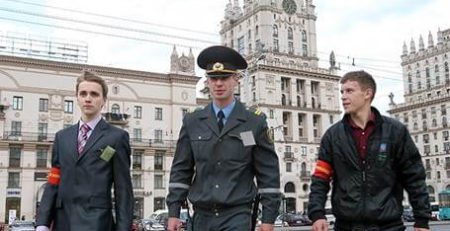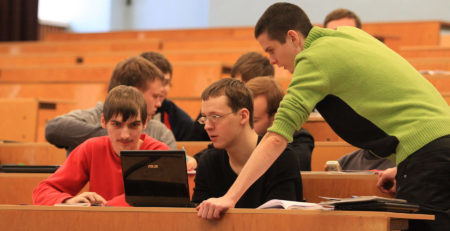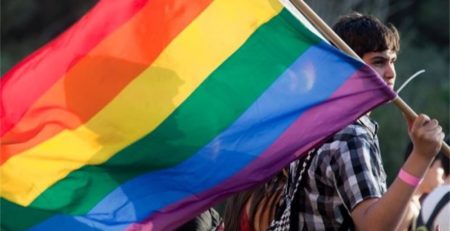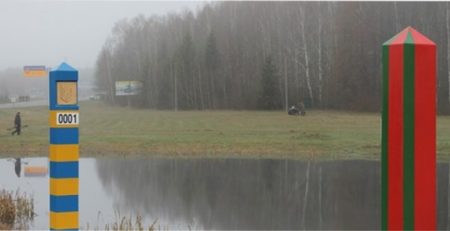Elections 2015: The end of the opposition, or the beginning of a new era?
Apparently, no other event has divided the Belarusian opposition as did the presidential election that took place on October, 11th. Over the past 20 years, the opposition has managed to survive the split associated with the boycott of the parliamentary elections in 2000, and shown extraordinary discipline in the selection of a single candidate for the presidential elections in 2001 and 2006. The opposition was even able to recover from disaster in 2010, when disagreements between the candidates contributed to the suppression of protests in Minsk. In this way, 2015 held a big surprise for election observers.
As early as 2014 all the negotiations towards finding a single candidate were unsuccessful. This was largely due to the diversity of candidate affiliations (from Christian Democrats to Communists), which was not a surprise to anyone. No party, however, viewed the ideological differences as essential. The main problem at that moment was in finding a method for choosing a single candidate: it could have happened either through the nomination at the Congress of Democratic Forces, or through the way of the so-called primaries in the regions, where voters would have been able to directly support their favourite candidates.
This division in the ranks of the opposition was, to a large extent, caused by the fact that the “patriarchs” of the movement (the politicians Nekliajev and Milinkevich), rejected to offer their candidacy. The alliance of these politicians within the coalition “National Referendum” (Tell the Truth, BNF Party, the Movement “For Freedom”, the Belarusian Social Democratic Party), had provided the greatest hope. Both politicians had been highly regarded in opposition politics in the recent years. However, even the “National Referendum” did not succeed in nominating a single candidate. This was mainly due to the failure of the Movement “For Freedom” (led by Milinkevich), which rejected the idea completely.
The biggest blame for the destruction of mutual cooperation can probably be attributed to the close associates of the ex-candidates: one of the fundamental problems was not so much in who should be the single candidate, but in who should lead the election campaign, and in what way. The question “How should the election campaign be conducted?” posited afterwards, disrupted the cooperation in the remaining parts of the National Referendum. Firstly, the Social Democrats withdrew their support (despite the fact that the nominated candidate was Tatyana Korotkevich, a member of the Social Democratic Party) and later the BNF did the same. Tatyana Korotkevich was initially criticized for weak rhetoric skills. At this point something almost unbelievable for Belarus happened: while democratic media, in their coverage of elections, began to look for errors and attack the statements and the program of Tatyana Korotkevich, the state media did not show any pressure.
Initially, the criticism was connected to the issue of political prisoners. Proponents of the elections boycott accused Korotkevich and the Tell the Truth campaign of unethical behaviour, due to their participation in the elections while the former presidential candidate Nikolai Statkevich was still behind bars. However, even after Lukashenko pardoned political prisoners, this criticism continued to resonate. Interestingly enough, Nikolai Statkevich was originally a supporter of the elections (while still in prison he filed an application for registration as a presidential candidate, but the group which should have supported his candidacy was not registered by the Central Election Commission, which was against the law). However, after being released, Statkevich appealed to the voters during a demonstration to: “Ignore these elections because no opposition candidate will take part in them. If a candidate from United Civil Party, Anatoly Lebedko, would have collected the necessary 100,000 signatures, I would have supported him even from prison, with the help of lawyers, and I would have helped him to get to the end of the campaign and invite people to the Square.”
All of this was connected to a second problem: Why did so many people refuse to perceive Tatyana Korotkevich as an opposition candidate? In fact, during the phase of signature collection, supporters of Tatyana Korotkevich, with few exceptions, did not come into direct and open conflict with the state authorities, perhaps, because of her motto “moderate changes”. When speaking to the media Korotkevich did not reject the possibility of joining the ruling circles if such an opportunity would have been offered by Lukashenko. After she was registered as a full-pledged presidential candidate, she began to attack Lukashenko, mainly due to the issue of Russian military bases. The voters of the opposition just didn’t think it was hard enough.
It is difficult to say which of the opposition’s strategies was more successful. On the one hand, the traditional opposition, which consolidated around the idea of the boycott of the elections, and was against the participation of Tatyana Korotkevich in them, could not rely on a significant protest potential, which was necessary to bring people to the Square. None of the protest actions, which Statkevich, Lebedko, and Nekliajev jointly organized, gathered more than a thousand people. The appeals for the boycott of the elections also failed as the mandatory minimum turnout was exceeded. On the other hand, Tatyana Korotkevich can hardly rely on the 17% voter support, which was attributed to her by independent sociologists from NISEPI. This 17% were people who had not previously voted for the opposition, and, in the opinion of many analysts, were ready to vote for anyone except Lukashenko and the radical opposition. Unlike the disciplined opposition electorate, these people would have hardly become voters of Tatyana Korotkevich. In the future, it will require a big effort for her to find a standing with these voters.
Regardless, it will be necessary for both groups to change their strategies in the future, particularly with regard to the fact, that the European Union has decided to end sanctions against the Belarusian regime. Regardless of the election results, the EU’s relations with Belarus was, until then, one of the main weapons of the traditional opposition. It had always performed a role of a mediator. Due to the above-mentioned changes, the opposition has somehow lost its position.
Therefore one last question remains open: Can the current opposition mobilize and reform? or will other structures, that have no relationship with the democratic movement of the last 20 years, and which follow completely different principles, take its place? Although people have started referring to Tatyana Korotkevich and Tell the Truth movement as representing these structures, they do not view themselves in this way.








